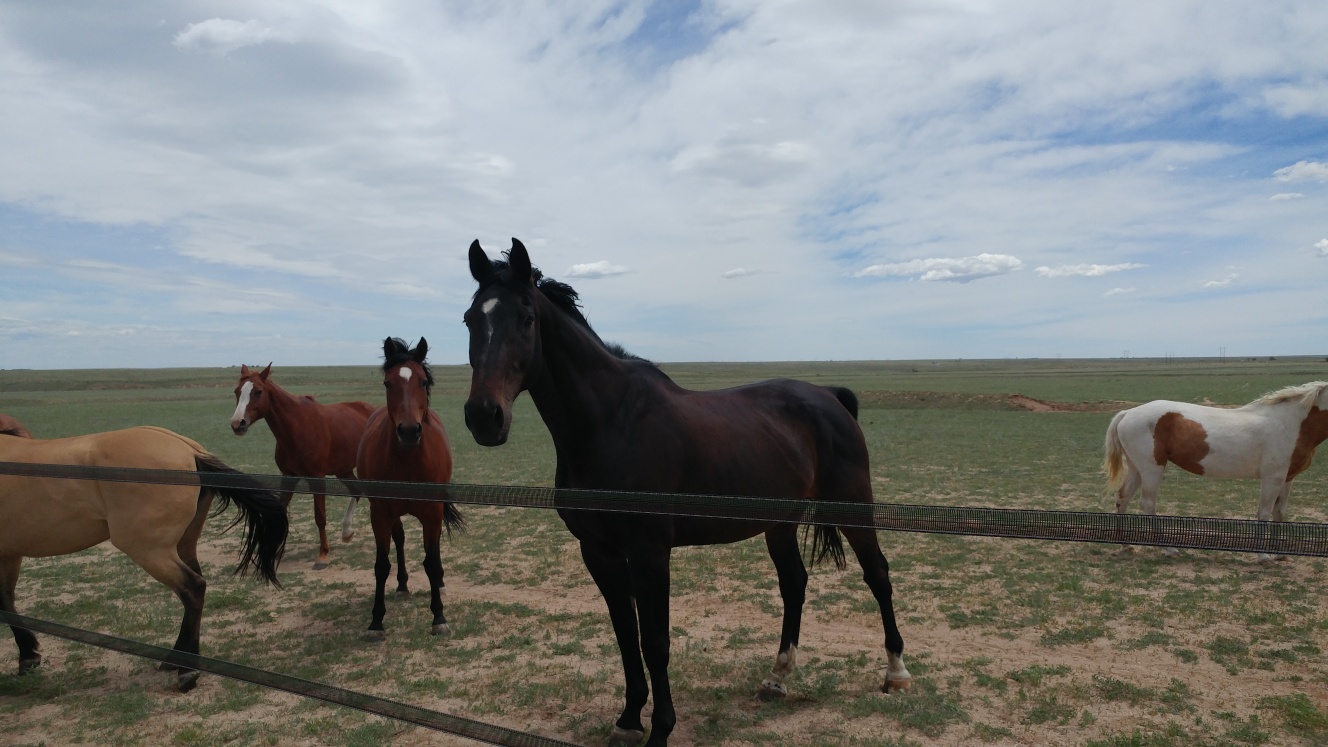Fencing Out in Colorado-Colorado Fence Laws-Colorado Fencing Laws
” Republished with Permission from Horse Connection Magazine“ – Legal Lead, December 2005.
MARC C. PATOILE, ATTORNEY AT LAW
A client called the other day. She told me she was ranch-sitting for her family and she was in quite a panic—the cattle had gotten out for the second time that week through a fence line and into the neighbor’s pasture. The neighbors were threatening to call the sheriff and she wanted to know whether she could be facing civil liability or, worse yet, criminal charges. She explained it was the neighbor’s fence and it had become quite rickety through the years. It brought to mind other fence problems we had advised clients about, such as the boarding facility whose horses had become loose on the road as a fence line had collapsed from flooding. They were very concerned for the safety of the horses and for drivers on the roadway.
In Colorado, landowners have the inherent right to choose whether to fence their land or not. The common law held that the owner of trespassing livestock, including horses, was strictly liable for their trespasses on the lands of others. In 1885, the Colorado legislature passed a fencing statute. This statute is commonly referred to as the “open range” or “fence out” statute, which is common in many Western states. The Colorado Fence Law superseded the common law, and so the owner of livestock is under no statutory duty to fence in his livestock. The livestock owner is also not responsible for non-willful trespass causing damage to vegetation on property which is not protected by a lawful fence.
Any person maintaining in good repair a lawful fence may recover damages for trespass from the owner of any livestock that break through such fence. A “lawful fence” is a well-constructed three barbed wire fence with substantial posts set at a distance of approximately twenty feet apart, and sufficient to turn ordinary horses and cattle, with all gates equally as good as the fence, or any other fence of like efficiency.
Without a “lawful fence,” the landowner has no civil recourse for damage done to their property by trespassing livestock. Livestock invading “lawfully fenced” property is not a criminal offense, but civil recourse is available to the property owner for damage caused by trespassing livestock. The burden of proof falls upon the landowner to prove the livestock broke through their lawful fence, and livestock found trespassing may be taken up by the person damaged and held as security for the payment of damages in costs. However caution is necessary in such situations, as you become legally responsible for their care and feeding. The best practice is to notify the Colorado Division of Brand Inspection and the sheriff’s office when livestock trespass occurs. You may wish to consult with an attorney about recovering your civil damages in court or arbitration, which is provided for under the statute as a cost-saving measure.
However, “open range” does not mean a stockman can simply allow their livestock to run at large without penalty. There are laws prohibiting grazing on roads and in municipalities and horses running at large. These statutes can be used by local law enforcement to help curtail such negligent animal ownership. But perhaps the biggest concern is that the Colorado fence-out law does not shield a livestock owner from an action of personal injuries caused by their livestock trespassing on the land of others. Most alarming is the fact that the “fence law” will not bar an action for escaped livestock involved in an accident on public highways nor will it prevent a personal liability action if the livestock injures a person, such as a loose horse kicking a neighbor child.
Most livestock owners do not intend for their livestock to stray and will respond quickly to recover them. If you find livestock running loose, try to notify the owner immediately. If you do not know who owns the livestock, contact the local brand inspector and the local sheriff’s office. If this doesn’t result in the remedy you desire, you may wish to consult with an attorney about civil action. As grandpa used to say, “Good fences make good neighbors.”
 Marc C. Patoile is a trial lawyer and shareholder in the regional law firm of Folkestad, Fazekas, Barrick & Patoile, P.C., with offices in Castle Rock, Colorado. He can be reached at 303-688-3045 or patoile@ffcolorado.com.
Marc C. Patoile is a trial lawyer and shareholder in the regional law firm of Folkestad, Fazekas, Barrick & Patoile, P.C., with offices in Castle Rock, Colorado. He can be reached at 303-688-3045 or patoile@ffcolorado.com.
Fencing Out in Colorado-Colorado Fence Laws-Colorado Fencing Laws
This article is provided for informational purposes only, is not intended to provide any legal advice, nor is it intended to create an attorney-client relationship between you and Folkestad, Fazekas, Barrick & Patoile, P.C. You should not act or rely on any information in this article without seeking the advice of an attorney.








